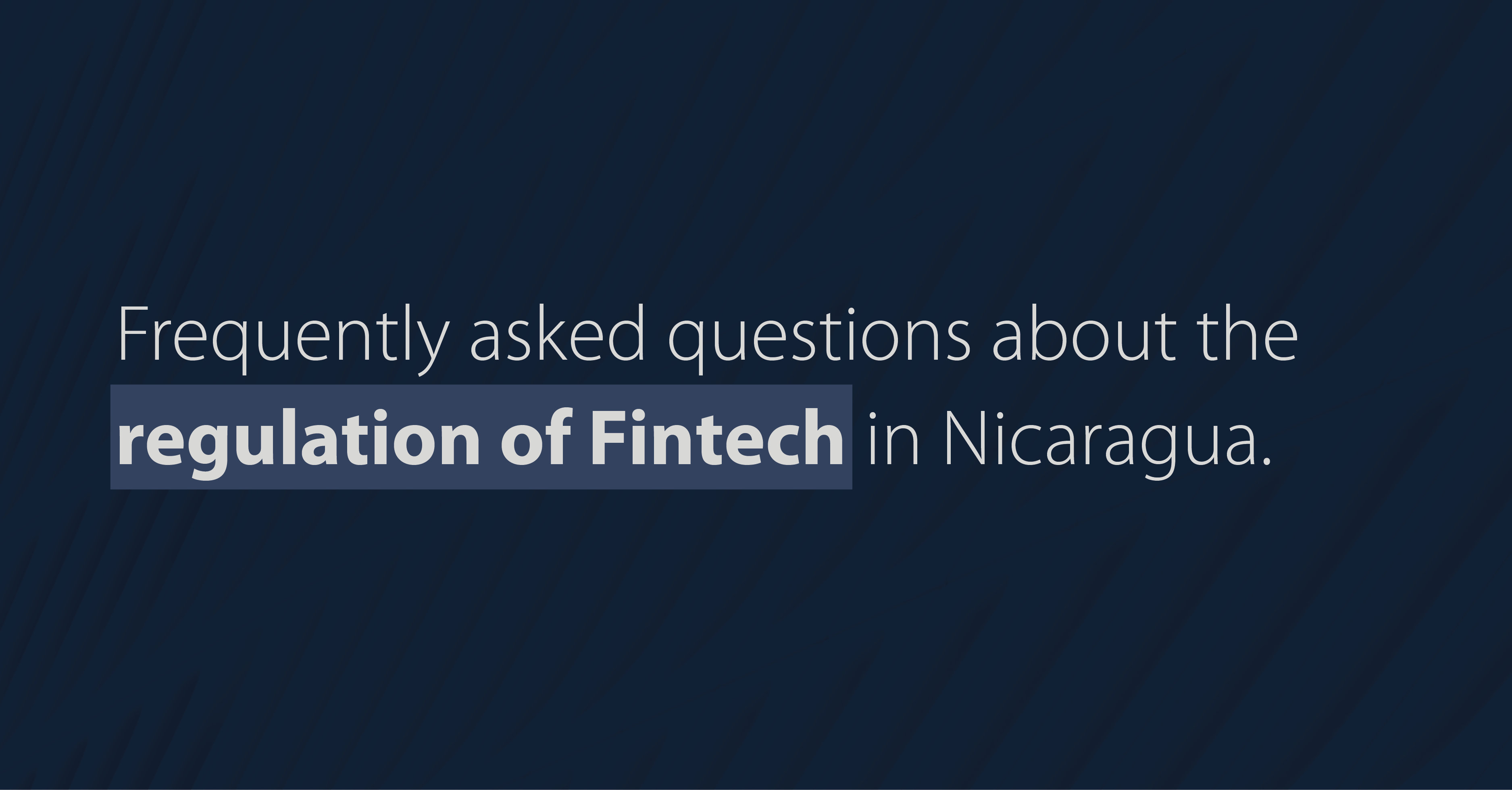Federico Barrios
Director at BLP
Nicaragua
[email protected]
Nicaragua has been regulating the application of technological tools in financial activities since, and to the extent that the local market requires the implementation of advances that allow more efficient processes to execute money transactions.
Below, we address frequently asked questions regarding Fintech regulation in Nicaragua.
- What is Fintech?
Fintech (Financial Technologies) refers to the technology that enables financial innovation, which may result in new business models, applications, processes, or products with a material effect on financial markets and the provision of financial services.
- What are the products and services that can be considered Fintech?
- Means of Payments and Transfers: Mobile Wallets, Mobile Points of Sale (mPOS), mobile wallets, and digital money.
- Alternative financing: P2P loans, Crowdfunding, and Online Lending (individuals and companies).
- Personal Finance and Asset/Wealth Management: Digital Wealth Management, Robotic Advisors, Debt Management and Restructuring.
- Business finance: Electronic invoicing, digital accounting, financial management, and business intelligence.
- Negotiation of financial assets (trading) and stock market: Forex (FX) and stock market solutions.
- Credit risk, back office, digital identity: Identity and Know Your Customer (KYC) solutions, biometrics, smart contracts.
- What is the regulatory legal framework for Fintech in Nicaragua?
- Law No. 977 “Law against money laundering, financing of terrorism and financing of the proliferation of weapons of mass destruction,” Article 32 Regulation of remittance services, purchase and sale and/or currency exchange, financial technology of payment and virtual assets: recognizing the need for regulation through the Central Bank to establish the conditions of commercial activity, authorizations and records of operations of companies that offer technological financial services.
- Regulation of financial technology payment and virtual asset service providers, Resolution No. CD-BCN-XXV-1-22: Applicable to financial technology providers of payment services detailed in the Regulation in the national territory, its primary function is to regulate the authorization process of financial technology providers of payment services and establishes other provisions applicable to authorized providers.
- What are the regulated Fintech services in Nicaragua?
- Digital wallets: Platforms accessible from the web, mobile applications, or any secure interface used to make online payments, for example, credit cards, debit cards, or electronic money accounts.
- Mobile point of sale: Portable device linked to a payment network to process and record payment transactions using cards, electronic money accounts, electronic wallets, etc., through readers compatible with cell phones, Bluetooth, or other means.
- Electronic money (e-money): A financial instrument that represents and is backed by a national currency that allows payments and transfers through electronic devices.
- Virtual currencies: Electronically registered representation of value not issued by a central bank or public authority, is used among the public as a means of payment for various legal acts, and whose transfer can only be carried out by electronic means.
- Trading and exchanging currencies electronically
- Fund Transfers
- What is the difference between an electronic (online) and a physical money transfer?
The difference is that to make use of your online banking, in all cases, the sender must have a bank account, and in almost all cases, the receiver as well. In an e-money transfer, users may not be bankable and still have access to means of payment and storage of funds. The e-money is not in a bank account, thus streamlining transactions.
- What is a PSP?
PSP – [Fintech] Payment Services Provider: Legal entity authorized and regulated by the Central Bank of Nicaragua (BCN), engaged in providing payment services with (i) digital wallets, (ii) mobile points of sale, (iii) electronic money, (iv) electronic currency trading and exchange services, (v) fund transfer services, (vi) online payment gateways, and (vii) other innovative payment services as cataloged by the BCN’s Board of Directors.
- What is a VASP (PSAV in Spanish)?
Virtual Asset Service Provider: Legal entity authorized and regulated by the BCN to carry out one or more of the following activities or operations for or on behalf of another natural or legal person: (i) exchange between virtual assets and fiat currencies; (ii) exchange between one or more forms of virtual assets, (iii) transfer of virtual assets; (iv) custody and/or administration of virtual assets or instruments that allow control over virtual assets; and (v) participation in and provision of financial services related to an issuer’s offering and/or sale of a virtual asset.
Federico Barrios
Director
Nicaragua
[email protected]




